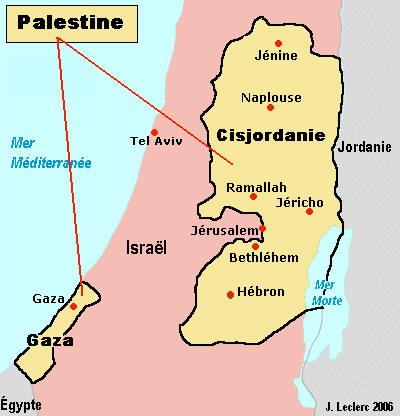
This post includes information drawn from Shlomo Maital who wrote an article entitled The Palestinian (Almost) State.
As politicians busy themselves with endless debates; business people, both Palestinian and Israeli, are creating economic realities on the ground, realities which speak louder than words, and which point to the possibility of peace, and to a new Palestinian State.
Economically speaking, the Palestine of the West Bank already has the makings of statehood. This year the West Bank economy will grow 7%, twice the rate of Israel’s economy. The Palestinian Monetary Authority is quickly evolving into a Central Bank. The Palestinian stock market is flourishing. Car sales doubled in 2008. A new town for 40,000 residents is about to be built north of Ramallah, the first such project in decades. Paltel is a thriving telecom company. Foreign aid this year will be $1.8 billion. Unemployment is still high at 18%, but is falling.
PA Prime Minister Salam Fayyad, a former World Bank official, is a financial maven who is making things happen for his people. He represents a new class of managers and investors, who thrive on competition, even against Israeli firms, and who hope to replace the Fattah leaders, whose corruption in the 1990’s all but guaranteed Hamas’s success in the 2006 election. For example, Mohammad Mustafa runs the Palestinian Investment Fund with transparency and business sense, as opposed to Yasser Arafat who controlled such funds secretly and corruptly.
In many respects, Israel is cooperating with and encouraging Palestinian economic growth. The number of check points and restrictions has been decreased dramatically, thus enabling the free-flow of goods and service. Trade is on the upswing. Approximately 80% of West Bank exports go to Israel, and similarly, 90% of West Bank imports come from Israel. As Ali Aggad, who heads APIC (Arab Palestinian Investment Company) puts it: “We have business partners in Israel…We are on excellent terms. It is the politicians who won’t leave us alone.”
Palestine still has a way to go on the road to statehood, but is should be recalled that years before David Ben-Gurion declared Israel an independent state, on May 14, 1948, the Jewish Agency and Hagana had put in place the needed infrastructure. Economy and infrastructure are prerequisites for a new state, and can help overcome a great deal of enmity. As Bernard Avishai, a noted author who writes about Israel puts it: “When people have reasons to dislike each other, they can at least like each other’s money.” Or as I like to put it: “Business creates its own ideological imperative.”
What is missing from all this is the issue of security. Economics is definitely one side of the coin, but security is the other. If Israel, by itself, or as part of a multi-national force, including several Arab partners for good measure, is able to guarantee Palestine’s security, even against such threats as Hamas, and if Palestinians, at least in the West Bank for now, can somehow become comfortable with such arrangements, then this could well close the deal on peace, and bring into being the birth of a new nation, the nation of Palestine, living in peace, side-by-side Israel, with secure and defined borders, while enjoying the prosperity of a booming economy. Is such an outcome even conceivable or is it just another dream? As Theodore Herzl used to say: “If you will it, it is no longer a dream.”



